- Home
- Sherrilyn Kenyon
What Dreams May Come (Berkley Sensation) Page 7
What Dreams May Come (Berkley Sensation) Read online
Page 7
“I am making you independently wealthy, ’cause we know that all good heroes are, and I’m making sure that Alinor’s copy of the book is spontaneously combusting into flames.”
“Can you do that?”
She smiled at him. “Baby, I’m the writer. According to Esther, I can do anything I want to.”
“And so what do you wish to do now?”
Taryn bit her lip as she raked a hungry gaze over his naked body. “Right now I wish to spend the rest of my day making love to you.”
She kissed him on his cheek, then scribbled a few more words.
“What are you saying now?” he asked.
She smiled at him. “I’m writing that we go on to live happily ever after.”
And then Taryn made sure to do the one thing that Alinor had forgotten to do. It was the one thing to make sure that no one added any more pages to her future or altered her life with Sparhawk.
She wrote the three most powerful words on the planet. “I love you.”
“Do you?” Hawk asked her.
Taryn paused as she realized that she had spoken those words out loud. “Yes, Sparhawk the Brave. I do.”
“Good,” he whispered, nuzzling her neck as his whiskers gently scraped her skin. “Because I love you, too.”
Her heart melted at his words. And then she quickly added the other two most powerful words on earth . . . The End.
Shattered Dreams
Rebecca York
Ruth Glick writing as Rebecca York
One
Miranda Grove had known all along that she must choose between hell and purgatory. No matter what happened, she wanted to get past the pain of the hard landing.
Grim-faced, she walked to the front door of her small wood-and-stone house high in the hills above Monterey, California.
In the five years she’d lived here, she often stopped to admire the breathtaking panorama that swept to the sparkling blue ocean miles below. Today she barely noticed her surroundings.
“Damn you,” she muttered, tears blurring her vision. Swiping them away, she climbed into her blue pickup and started toward the city where she had grown up.
“Why are you making me do this?” she raged into the empty truck cab.
Since she was alone, no one answered, and the silence sent her pain and anger boiling higher. In her mind, she began going over the speech she was planning to deliver. She would ask questions. Demand answers. And she could hear the angry responses snapping through her brain cells like a whiplash.
Her attention was so focused on the confrontation ahead that several minutes passed before she realized a vehicle was behind her, coming up on her bumper. Fast.
Lord, she didn’t need the kids up the hill playing games. Not today. Speeding up, she tried to get away.
Caleb Mancuso swiped his black hair back from his forehead as he examined the life-sized figure of a woman he was bringing to life out of Carrara marble.
She was sitting with her legs drawn up and her delicate hands clasped around her calves. Her head rested on her knees, concealing her face. But he knew her features by heart. Her large green eyes, her beautifully shaped lips, her small nose. Though the face was hidden, her hair flowed out behind her in all its glory. Rendered in marble, it was light in color. In reality, it was a dark waterfall.
He picked up his hammer and chisel, weighing them in his hands. The woman’s body language spoke to something deep within him. She looked caught in the grip of despair, hugging herself for comfort.
Probably he’d made up that part—projecting his own pain onto the statue, when the woman herself was doing just fine without him.
Miranda’s attention zinged back to her own vehicle as the SUV grazed her bumper with a thunk of metal on metal, shoving her toward the shoulder—and she knew that either her obnoxious neighbors had taken fun past acceptable limits, or someone was trying to kill her.
She was a good driver, thanks to her father, hard-as-nails Colonel Frederick Grove. He’d made sure of that—just the way he had insisted she know so many other skills he considered essential—like shooting and martial arts. But her beloved blue truck was old. With another hit from the SUV, she could be in serious trouble.
Mouth dry as sawdust, hands gripping the wheel, she pressed on the accelerator, trying to get away, but the SUV bashed her bumper again, shaking the truck, the sound screeching inside her head.
With her teeth clamped together, she fought to keep from flying off the road and into space. But she could barely control the vehicle now. Fear clogged her throat as she felt a front tire skid on gravel. Somehow she wrenched herself back to safety.
Caleb had just set the chisel against the statue’s left hand when he felt a jolt like a flash of lightning crackling through his head. He cried out, as much from surprise as from the stab of pain.
The figure in front of him and the walls of his workshop vanished as though they had never existed.
To his astonishment, he found himself sitting behind the wheel of an old but well-cared for pickup truck, hurtling down a hill.
“Jesus!”
Hands clenched on the wheel, he fought to keep the tires on the blacktop.
He had no time to think about how he had gotten from his studio into the truck. All he knew was that he had to keep the vehicle on the road, or he would die.
An engine roared behind him. Metal screeched on metal, and the truck shook. At the next curve, despite his efforts to prevent it, he left the pavement, went airborne, then landed with bone-jarring impact before plunging down a heart-stopping incline.
Suddenly Caleb was back in his workroom, gasping for air, his head spinning, his mouth dry as marble chips.
His hammer and chisel slipped from his hands, landing with a thud on the concrete floor. Swaying forward, he grabbed the statue’s arm to keep himself from falling.
For a space of time, he had lost his identity. Now he was back in his own body, but he knew his consciousness had leaped into another person’s mind.
It hadn’t happened to him in years. No—nothing like that had ever happened. Nothing that real. That vivid. That terrifying.
Dragging in a deep breath, he struggled to regain control of himself. But fear still clogged his throat. Not fear for himself. He’d recognized the interior of the truck. It was Miranda’s truck. And now that he had a moment to think clearly, he knew that the hands he’d seen on the wheel hadn’t been his. They had been her delicate hands—the same ones he’d been sculpting.
Another man might have dismissed the whole incident as some kind of feverish delusion. But not Caleb Mancuso. Not the son and nephew of Gypsy fortune-tellers. Not the grandson of a talented faith healer.
He knew in his gut that it had been real. And cold dread twisted inside him. The crash had flung him back into his workshop. But what about Miranda? In a truck that was too old to have an air bag.
He had to get back there and make sure she was all right! Now. But he hadn’t tried using psychic mumbo jumbo in years. No, not mumbo jumbo. It was real. Too real. Which was why he had struggled to shut it out of his life. He’d succeeded by brute force. And he didn’t know how to claw his way back to the accident scene.
“Miranda,” he murmured. “Miranda, let me find you. Let me find you the way I always could.”
When the plea fell into a vast, chilling void, he couldn’t hold back a surge of panic. Ruthlessly he tamped down the fear and reached out for the intimate mental link he had thought was broken long ago. He felt like he was in a pitch-dark room searching for the door with only his sense of touch.
He wanted to roar in frustration. Instead he ordered himself to calm down—to let the old skills come back. He couldn’t describe what he was doing. But he felt a sense of connection gathering as he opened his heart and mind. Opened himself to the pain of loss.
When he let his guard down far enough, it happened again. Somewhere deep in his consciousness, images flickered. And he was there, although it wasn’t the same. He wasn’t
behind the wheel. He was standing on the road—up the hill from the blue truck.
It had traveled down a steep incline and ended up crumpled against a tree trunk. Miranda was in the driver’s seat, slumped over the wheel, her upper body eerily like the statue he had been sculpting.
He couldn’t move. He could only stare in horrible fascination at the picture before him.
Heart pounding, he started picking his way down the hill, sliding when he couldn’t keep his footing. Again the scene flickered. He tried to hang on, tried to claw his fingers around a rock sticking out of the ground. But it slipped from his grasp, leaving him back in his workshop again and sick with fear and frustration.
Years ago he’d told himself he was better off without Miranda Grove. But that hadn’t stopped him from secretly keeping tabs on her—not with psychic abilities but with real-world facts. He knew she owned an outfitter business and led wilderness expeditions all over the western states. And he knew the location of her isolated house. The accident scene looked like it was up there in the hills above the city. And if she was on a road that few people used, who was going to call for help?
Sprinting down the flagstone path from his studio, he leaped through the kitchen door and snatched up the receiver of the wall phone.
But as he began to dial 911, he stopped and slammed down the receiver before he got to the last number.
The police and fire departments recorded these calls and checked them for location. What was he going to say, “I had a psychic vision of a location twenty miles away. Send an ambulance.”
When it dawned on him that he had another alternative, he ran to the bedroom and grabbed the prepaid cell phone that he’d bought recently. The dispatcher might record the call, but they wouldn’t know where he was.
Quickly he turned on the phone and punched in the digits.
“What is your emergency?”
“I want to report a vehicular accident.”
“What is the location?”
“The Old Logging Road. About halfway up the mountain. It looks like a pickup truck went off the blacktop and crashed against a tree. I can see somebody in it.”
“Can you give a more specific location?”
He thought back over the scene, praying he had the details right. “About five miles from the turnoff to San Miguel. Right after the trees start. Hurry. The driver isn’t moving.”
Knowing that there was no more information he could logically give, he cut the transmission and set down the phone, then pressed his hands against the kitchen counter to keep them from shaking.
He wanted to jump into his car and drive to the Old Logging Road. He wanted to make sure the EMTs arrived on the scene. But his home and studio were on the coast, and Miranda’s house was in the mountains. It would take him almost an hour to get to her—given the back roads he’d have to travel. Too long to do Miranda any good.
Pacing the length of the kitchen, he tried to bring his mind back to the accident scene.
But it had moved beyond his reach now, as though somebody or something was deliberately keeping him away.
He ached to dismiss the whole episode as a psychotic break. But he knew it was real. Knew it in his mind and in the icy tendrils gripping his gut.
On a surge of frustration, he walked into the bedroom and stood staring at the dresser, clenching and unclenching his fists. Finally he pulled open the top drawer and took out the small box where he’d put Miranda’s opal ring. The ring she had given back to him.
As he held it in his hand, he felt long-denied emotions clamoring for release. Anger. Sadness. Frustration. Ruthlessly he choked them off. He hadn’t dragged out the ring to torture himself. He needed to use it—to strengthen the connection to Miranda.
Long ago his grandpa Arthur had taught him to sit quietly with an object that belonged to someone else and open his thoughts to that person’s mind. Could he still do it?
Fighting the tightness in his chest, he carried the ring to his leather recliner and tried to get comfortable, despite his tension.
With his eyes closed, he let his mind drift, clenching his hand around the circle of hard metal and the small opal cradled in the delicate gold setting.
As he thought of Miranda—of days and hours they had shared—the metal grew hot in his hand. He remembered the first time he’d met her—when he was ten and she was nine. Her mother had come for a psychic reading, and he’d been left in charge of the little girl. At first they’d been shy with each other. But over those first few weeks, they’d gotten to be friends. He smiled as he remembered their secret rockbound hideout in the woods. It had been their fort, their pioneer camp, their bomb shelter, their spaceship.
They’d gathered underbrush to use for beds and poked sticks through cracks in the rocks and fired at the enemies surrounding them. And they’d brought chips and soft drinks and candy bars for provisions.
Against his will, another memory grabbed him. He was sixteen, and she was fifteen. He’d been living with Grandpa Arthur for the past few months, and the moment he and Miranda had seen each other again, they’d headed straight for their wilderness hideout, both of them nervous and both of them apparently with their minds on the same thing. Because when they stepped inside the circle of rock, the atmosphere grew thick with adolescent sexuality. When he’d turned toward her, she’d burrowed into the circle of his arms and lifted her head for his kiss.
Even now he remembered every detail of the scene. The tall trees above them. The feeling of heat traveling over his skin as he looked at her. The nervous flush on her cheeks. And the wonderful pressure of her lips against his, the marvel of her young body cleaving to his.
Adolescent Caleb Mancuso was instantly hard as a hockey stick—and embarrassed about it. So he had broken off the kiss and told her they were too old to be sneaking off alone. But they had done it again. And again.
Years ago he had been so close to her that he could sometimes read her thoughts. Then a half hour ago he’d been inside her head. Because she needed him. She still did!
“Let me come back to you,” he whispered, opening his mind and praying that he could reach her again.
But now it felt as if she was putting up barriers, the way she’d done eight years ago.
“Stop it,” he pleaded. “Let me help you.”
It felt as if he were trying to push his way through a thick rubber wall.
Teeth gritted, he rammed his shoulder against the strange, virtual surface, fighting the fear that making the connection would be impossible.
Two
You crashed in that truck. Then you saw the accident scene. Go back there now, Caleb ordered himself.
On a deep breath, he pushed harder against the imaginary wall. He knew the thick rubber palisade was a metaphor—a way for him to deal with something that defied human description.
Even as the thought skittered through his brain, he felt just the barest amount of give in the barrier and redoubled his efforts.
Somehow, he battered his way through the obstruction, and found himself back on the Old Logging Road. Only this time he saw the flashing lights of an ambulance and a police car.
Thank God. They are here. The dispatcher had believed him. Or someone else had reported the accident. It didn’t matter which. He was just grateful that help had arrived.
As he watched, two paramedics carried a stretcher up the steep incline. Miranda was lying on it, her eyes closed and her head bloody. Above her a bag of IV fluid dangled on a metal pole.
Quickly the rescue workers slid the stretcher into the open doors of the ambulance.
Without warning, just as it had before, the mental picture snapped off, like a door slamming in his face, leaving him sitting in his chair, gasping, his T-shirt clinging damply to his chest. They were taking her to the hospital. He had done what he needed to do.
He could stop worrying about her now, he told himself—wanting it to be true.
Miranda floated on a strange feeling of detachment. The ambulance doo
r clanked open, and she was wheeled down the hall into a large room with bright lights. She knew she was in the hospital. She knew people were gathered around her, transferring her from the gurney to a table.
She could hear them talking. Someone called out her blood pressure—100 over 60. Someone else stuck a needle in her limp arm, drawing blood. Other hands exchanged the fluid dripping into her arm for a fresh bag, then began washing the blood from her dark hair.
One of the nurses cut off her plaid shirt and jeans. From the chatter around her, she knew they were getting her ready for a CAT scan.
It was odd to be aware of all that when she lay on the table with her eyes closed. But she could observe the scene because her mind wasn’t in her body. Instead, she hovered far above the table, looking down on herself, watching a doctor and nurses work over her.
She should go back to her body. That was where she wanted to be. As she started to descend from her high perch, something pushed at her shoulder, stopping her. It felt like a giant hand holding her back.
She tried to shove against it, but she didn’t have the strength. Then the hospital scene flickered and went black.
Terror grabbed her by the throat. She could feel nothing, hear nothing, taste nothing. She was nowhere.
She tried to scream, but there was no air to pull into her lungs. Desperately, she grabbed for something, anything. She thought of the trick she sometimes used to calm herself—thinking of a lovely, familiar place. A picture of her favorite campground leaped into her mind, and as soon as the scene came to her, she sighed her relief. She reached for that image, caught it in a tight embrace, and felt solid ground beneath her feet again. Gratefully she dragged in a deep breath of pine-scented air, then looked up at the sun slanting through the trees. It was late afternoon, and the scent of pine perfumed the air.
She glanced down at her plaid shirt and jeans. Hadn’t somebody cut . . .

 Styxx
Styxx Inferno
Inferno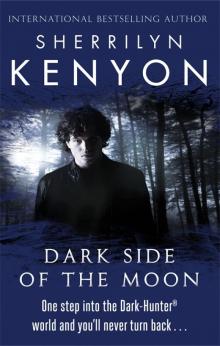 Dark Side of the Moon
Dark Side of the Moon Infinity
Infinity Acheron
Acheron Dead After Dark
Dead After Dark Playing Easy to Get
Playing Easy to Get Second Chances
Second Chances One Silent Night
One Silent Night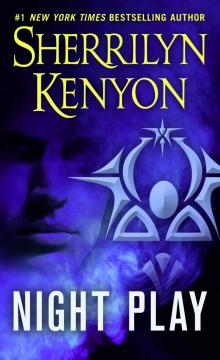 Night Play
Night Play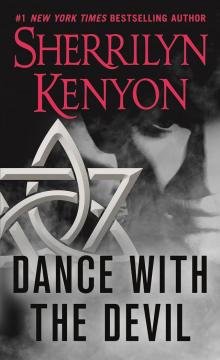 Dance With the Devil
Dance With the Devil Unleash the Night
Unleash the Night Born of Legend
Born of Legend No Mercy
No Mercy Fire Bound
Fire Bound Seize the Night
Seize the Night Intensity
Intensity Rise of the Gryphon
Rise of the Gryphon Born of Vengeance
Born of Vengeance Witchlock
Witchlock Retribution
Retribution The Curse
The Curse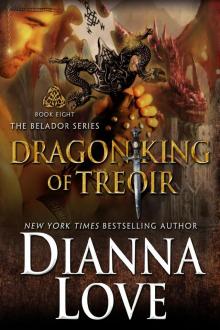 Dragon King of Treoir
Dragon King of Treoir The Dream-Hunter
The Dream-Hunter Cloak & Silence
Cloak & Silence The Guardian
The Guardian Sins of the Night
Sins of the Night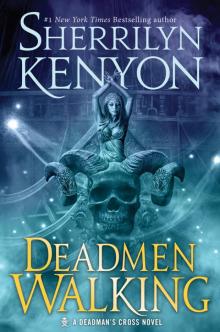 Deadmen Walking
Deadmen Walking Upon the Midnight Clear
Upon the Midnight Clear Dream Chaser
Dream Chaser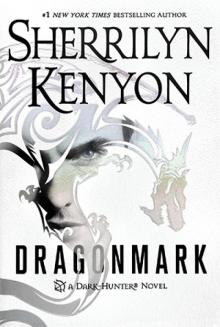 Dragonmark
Dragonmark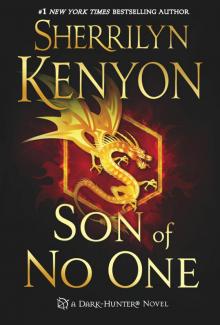 Son of No One
Son of No One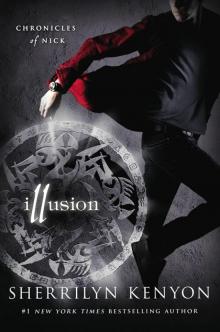 Illusion
Illusion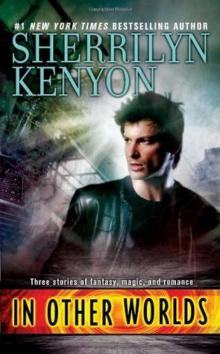 In Other Worlds
In Other Worlds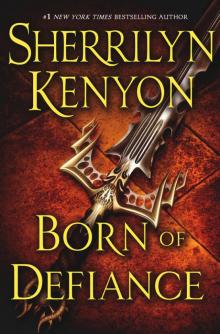 Born of Defiance
Born of Defiance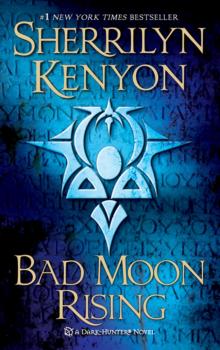 Bad Moon Rising
Bad Moon Rising Born to Be Bad
Born to Be Bad Born of Ice
Born of Ice Bad Attitude
Bad Attitude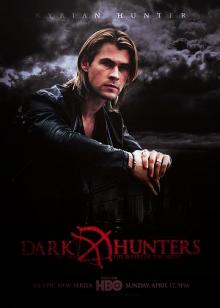 A Dark-Hunter Christmas
A Dark-Hunter Christmas Dream Warrior
Dream Warrior Alterant
Alterant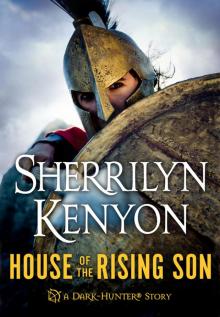 House of the Rising Son
House of the Rising Son Instinct
Instinct Stygian
Stygian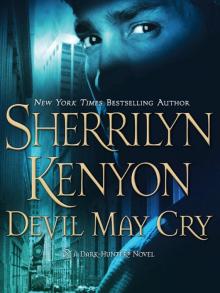 Devil May Cry
Devil May Cry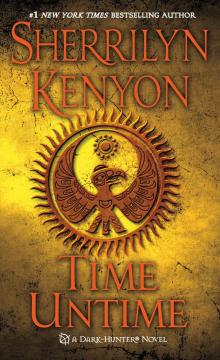 Time Untime
Time Untime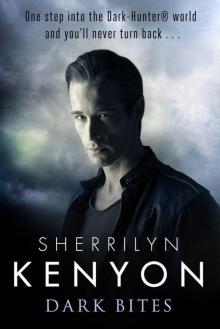 Dark Bites
Dark Bites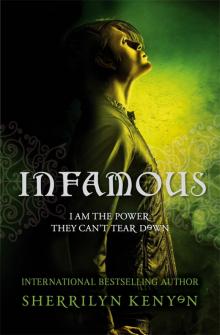 Infamous
Infamous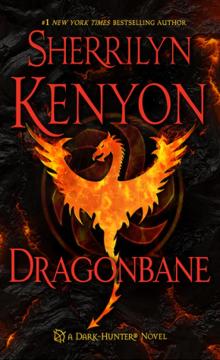 Dragonbane
Dragonbane Night Embrace
Night Embrace Kiss of the Night
Kiss of the Night Born of Fire
Born of Fire Invincible
Invincible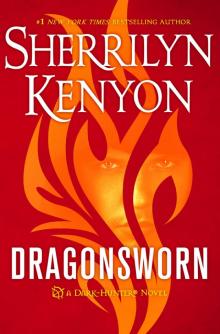 Dragonsworn
Dragonsworn Born of Night
Born of Night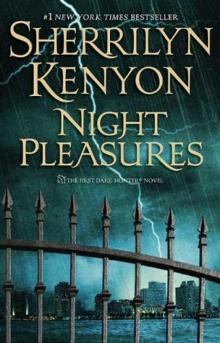 Night Pleasures
Night Pleasures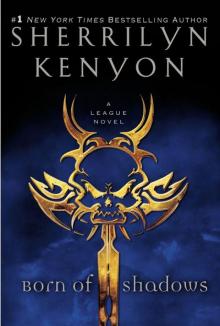 Born of Shadows
Born of Shadows Blood Trinity
Blood Trinity Deadly Promises
Deadly Promises Rogue Belador
Rogue Belador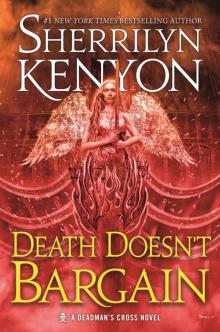 Death Doesn't Bargain
Death Doesn't Bargain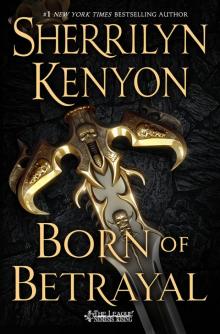 Born of Betrayal
Born of Betrayal At Death's Door (Deadman's Cross Book 3)
At Death's Door (Deadman's Cross Book 3) Belador Cosaint
Belador Cosaint Fire and Ice
Fire and Ice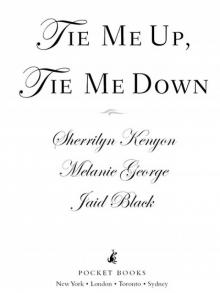 Tie Me Up, Tie Me Down
Tie Me Up, Tie Me Down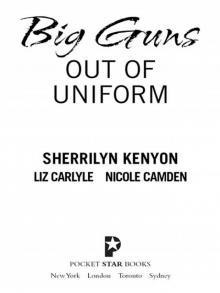 Big Guns Out of Uniform
Big Guns Out of Uniform Silent Truth
Silent Truth Whispered Lies
Whispered Lies Phantom in the Night
Phantom in the Night![[BAD 07] - Silent Truth Read online](http://i1.bookreadfree.com/i/03/17/bad_07_-_silent_truth_preview.jpg) [BAD 07] - Silent Truth
[BAD 07] - Silent Truth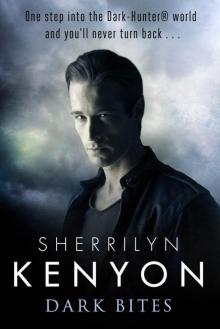 Dark Bites (Dark-Hunter World)
Dark Bites (Dark-Hunter World) Stygian (The Dark-Hunter World Book 28)
Stygian (The Dark-Hunter World Book 28) The League 3: Paradise City
The League 3: Paradise City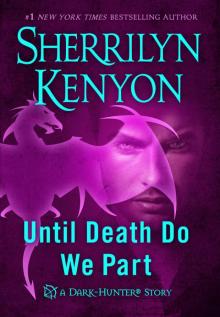 Until Death We Do Part
Until Death We Do Part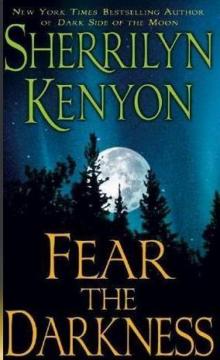 Fear the Darkness
Fear the Darkness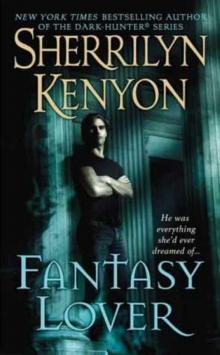 Fantasy Lover
Fantasy Lover![Insurrection [Nevermore] Read online](http://i1.bookreadfree.com/i1/03/30/insurrection_nevermore_preview.jpg) Insurrection [Nevermore]
Insurrection [Nevermore] Winter's Night
Winter's Night Dead After Dark_Shadow of the Moon
Dead After Dark_Shadow of the Moon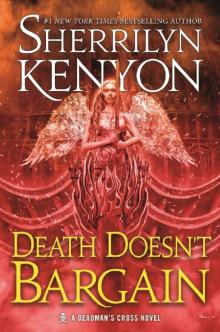 Death Doesn't Bargain: A Deadman's Cross Novel
Death Doesn't Bargain: A Deadman's Cross Novel Winter Born
Winter Born Dragonswan
Dragonswan Rise of the Gryphon (Belador #4)
Rise of the Gryphon (Belador #4)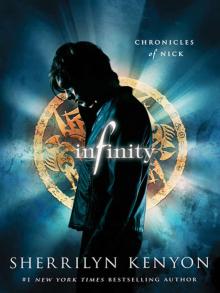 Infinity: Chronicles of Nick
Infinity: Chronicles of Nick The League 1: Born Of The Night
The League 1: Born Of The Night What Dreams May Come (Berkley Sensation)
What Dreams May Come (Berkley Sensation) The Beginning
The Beginning Alterant: Belador Code Series: Book Two
Alterant: Belador Code Series: Book Two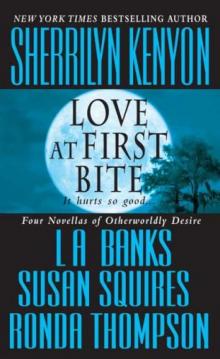 Love At First Bite
Love At First Bite Styxx (DH #33)
Styxx (DH #33) A Hard Day's Night-Searcher
A Hard Day's Night-Searcher Phantom Lover
Phantom Lover Cloak & Silence (The League)
Cloak & Silence (The League) The Curse (Beladors)
The Curse (Beladors)![[Dark Hunter-Were Hunter 2] - Night Play Read online](http://i1.bookreadfree.com/i2/04/08/dark_hunter-were_hunter_2_-_night_play_preview.jpg) [Dark Hunter-Were Hunter 2] - Night Play
[Dark Hunter-Were Hunter 2] - Night Play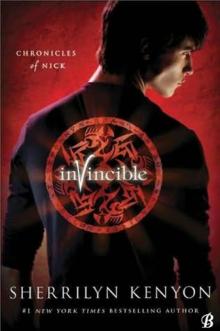 Chronicles of Nick 02 - Invincible
Chronicles of Nick 02 - Invincible Naughty or Nice?
Naughty or Nice? BAD to the Bone
BAD to the Bone Stroke of Midnight
Stroke of Midnight![Dragonbane_[AN_SK] Read online](http://i1.bookreadfree.com/i2/04/12/dragonbane_an_sk_preview.jpg) Dragonbane_[AN_SK]
Dragonbane_[AN_SK] Man of My Dreams
Man of My Dreams